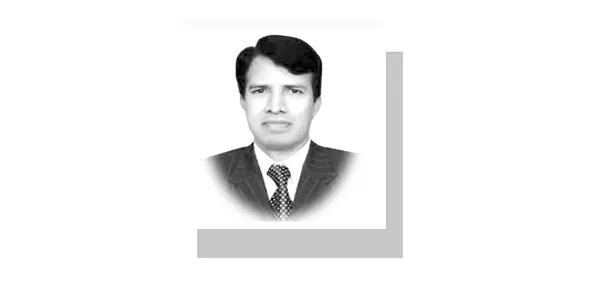By the time this article is published, results of general election-2024 would be declared, with a clear political party position. As a result of this election, the people of Pakistan hope for a positive change and a politically stable government, since the political instability give way to economic instability and social unrest. Pakistan has passed through political instability in the last two years, thus needs stable and strong political governments at the Centre as well as in its all federating units. Conduct of elections is key to the democratic process of a state and being a politically aware democratic nation, Pakistan needs this more than any other state. In 12th general election (Elections-2024), there were more than 120 million voters to decide their future elected representatives. This voter list mainly consists of the youth, with less than 45 years of age.
The concept of good economics is not new for the people of Pakistan; nevertheless there has been a partial exercise of this concept in Pakistan in its seventy-six year’s history. An efficient economic management through good governance is said to be the start and end of everything in a country. Indeed, the strong economy is the source of national strength and forms the basis for a knowledgeable and resilient work-force of a nation. Indeed, not the resources but the poor economic management and bad governance is considered to be the real cause of the deteriorating economy of Pakistan. Primary responsibility of the previous government was to identify and prioritize the problems facing the state and society of Pakistan. Identifying the problem areas at an early time-frame and focusing on resolving them by all possible means and through better economic management could have saved the state from ongoing economic crisis. But, neither the problems identified nor any serious efforts were made to overcome the economic crisis. Once confronted by financial challenges, the government resorted to rushing to the IMF for a possible rescue which provided money with heavy interest rates and pre-conditions like impositions of heavy taxes and levies on the masses.
A brief comparison of PTI and PML-N governments would indicate the trends of good governance and economic management in the last ten years. In 2019, IMF provided 39-months loan to Pakistan under the Extended Fund Facility (EFF). It was a total of $6 billion loan provided to support the economic reform programme of Pakistan. Despite this loan facility of the IMF and other loans from many friendly countries, the PTI Government could neither reform the national economy nor could provide relief to the masses. Though the GDP of the country was shown to be over three per cent for the fiscal year 2021/22, yet the economic state of the country remained extremely uncertain for this fiscal year. It is worth mentioning that, for the first time in the history of Pakistan, its GDP growth was negative (0.38% for the fiscal year 2019-2020. Indeed, the PTI Government and its economic managers responsible for managing the state’s economy could neither appreciate the looming financial crisis nor take timely measures to avoid the financial meltdown of Pakistan. Resultantly, Pakistan faced economic downfall in the last five years. It is worth mentioning that, while the national economy of Pakistan was sliding downwards, there developed unprecedented mushroom growth of the various cartels in Pakistan. These cartels were controlling the prices and supply of almost all critical food items and petroleum with or without consent of the then PM. Indeed, the government has become hostage to these cartels; some of them were part of PTI Government as sitting ministers, MPs and advisors. Despite efforts of Prime Minister, Shehbaz Sharif, the coalition government of PDM badly failed in the uplift of national economy of Pakistan and deliverance of good governance.
It is worth mentioning that the GDP growth rate for the fiscal year 2017-2018 during the PML-N Government was over 4.5% which means it was better economic management until 2018. Indeed, the economic management of Pakistan was better from 2013 to 2017. Similarly, the exchange rate of PKR versus US Dollar (1 USD=280 PKR) is the highest in the history of Pakistan. It remained almost constant from 2013 to 2018 with a reasonable rate of 1 USD=100 PKR. There started an economic downfall of Pakistan from 2018 which is continuing even today. It is worth mentioning that in 2017 inflation rate was 4.15% which was further reduced to 3.93% in 2018. The inflation had risen to 6.74% in 2019 and reached its peak (12.50 %) in March 2022. From April 2022, governance and economic management further worsened under the PDM Government. In addition, poverty is at an all time high in Pakistan where the number of poor people is increasing with each passing day as food items and basic necessities of life are beyond the reach of the common man. This is the actual and grim economic situation facing the state of Pakistan where provinces and institutions are unable to manage their annual expenditures.
Through Elections-2024, it is expected that the people of Pakistan will elect those representatives who can deliver better on account of: a) economic development of Pakistan and b) ensuring good governance for the masses of Pakistan. Pakistan needs a committed political leadership for development in all sectors; social, political and economic.
— The writer is Professor of Politics and IR at International Islamic University, Islamabad.
Email: drmkedu@gmail.com
views expressed are writer’s own.










